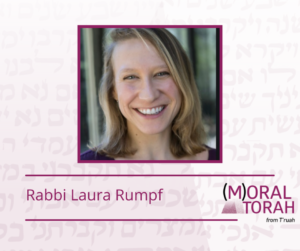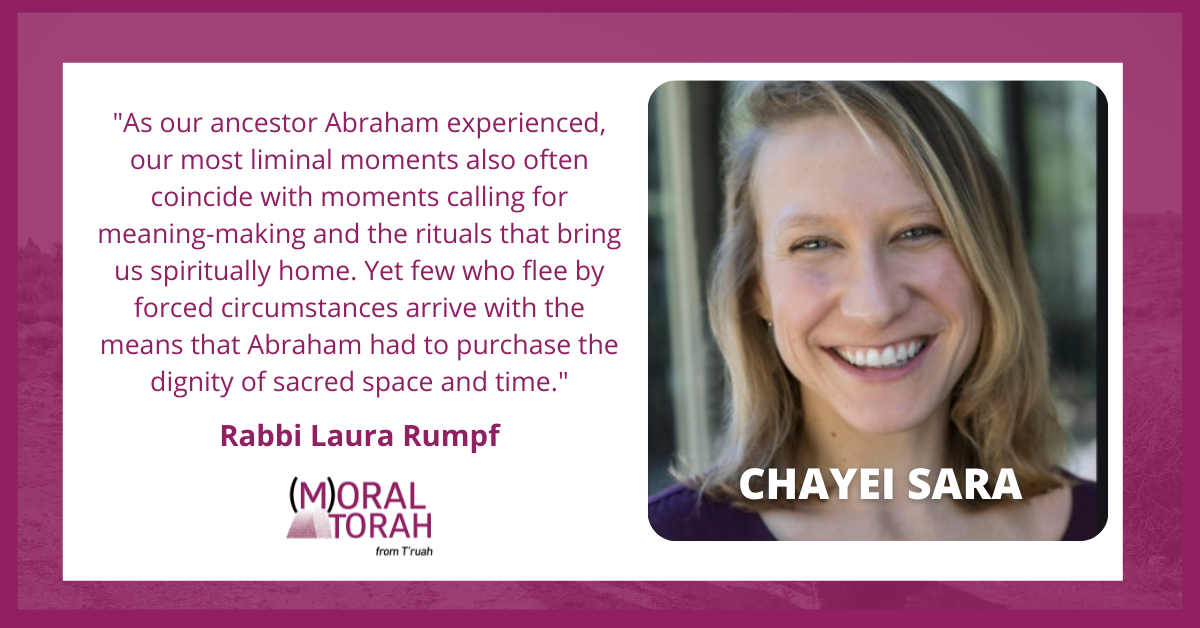A D’var Torah for Parshat Chayei Sara by Rabbi Laura Rumpf
Keys to a spare guest residence. Amazon wishlists with everything from backpacks to bed frames. Hot meals and warm clothes for the winter. Counseling and job application assistance….
This October, I began a new position as Director of Project Kavod/Dignity for Jewish Family Services (JFS) of Seattle just as the agency was planning a multi-pronged approach to address the largest refugee resettlement crisis the city has seen in decades. Since its founding in 1892, JFS has supported those seeking new homes when their countries of origin become untenable or dangerous. This season, it has joined agencies across the country in aiding the surging population of Afghan families looking to build new lives in the United States as they flee life-threatening circumstances.
The list of ways volunteers felt moved to meet the incoming refugees impressed me in its breadth and creativity. As I imagined what I might be able to add to the list myself, using the framework of dignity that my role encourages, I found inspiration in this week’s parshah, Chayei Sara.
This week, our Torah calls us to put ourselves in the shoes of Abraham, our ancestor, at a time of loss and transition in his journey. Late in his life (his 12th decade), we find Abraham having amassed a great fortune and following, but spiritually bereft, having separated from his son after the Akedah (the Binding of Isaac) and having lost his wife Sarah. His grief at Sarah’s death quickly transforms into a logistical quandary, as he seeks a place to bury her in a land where he is not a citizen. Fortunately for Abraham, he possesses the resources and legal savvy to advocate for what he needs: Abraham identifies himself to the Hittites, those who dwell in the land, as “ger toshav,” “a foreigner living among you for a time.” This status acknowledges he is without access to the typical property rights afforded to citizens. Still, he insists on fully purchasing the land where he wishes to bury her, agreeing to an exorbitant price (400 shekels) in order to convince them to do something unprecedented. With intention, he assures that the purchase is witnessed and affirmed at the city gate in front of the town’s leaders so no questions can be raised about his acquisition, and he feels full assurance that the deal is sound. (Genesis 23:16-19)
Sign up to receive (M)oral Torah in your inbox each week.
Abraham’s great privilege enables him to bypass property laws that would be prohibitive to most foreigners and grants him the ability to grieve and honor his wife as fits his people’s customs, even though he is not a citizen of the land he lives in. The cave of Machpelah where she is buried comes to symbolize the kavod, dignity, that he can extend to his loved ones. Shortly after the burial, the Torah emphasizes that “God had blessed Abraham in every way,” (Genesis 24:1), indicating that the ability to honor Sarah and preserve a place for his family to be buried contribute to a larger picture of well-being.
As I consider the present refugee emergency driving so many from their homes in Afghanistan with little beyond what they can fit in a suitcase, I wonder what obstacles they have encountered to accessing emotional and spiritual dignity. I imagine many individuals and families have felt their spiritual and religious needs unmet or subsumed in chaos, whether they’ve left precious ancestral homes, forgone weddings or family celebrations, or lost access to family burial grounds and other sacred spaces.
As a rabbi working in a social service agency, I yearn to expand the ways we meet the needs of the ger toshav as they navigate time beyond the first week of arrival. Hand in hand with the incredible efforts to clothe, feed, and house those in transition, I wonder how we can better recognize the spiritual, religious, and ritual needs of incoming and newly settled refugees for whom daily life has been upended.
Find more commentaries on Chayei Sara.
As our ancestor Abraham experienced, our most liminal moments also often coincide with moments calling for meaning-making and the rituals that bring us spiritually home. Yet few who flee by forced circumstances arrive with the means that Abraham had to purchase the dignity of sacred space and time. Might we add to the brilliant list that volunteers have generated: sanctuaries for refugees to hold prayer gatherings, culturally sensitive pastoral care, the means to honor the dead for those who are far from the places their loved ones are buried?
Can we get creative in a time that has defied everyone’s expectations for expressions of sacred living? As a rabbi, I have been challenged to transcend many of the boundaries of ritual that I was trained to conduct, including performing Zoom memorials and weddings, virtual mezuzah hangings, and encounters with Torah and text online over this pandemic.  I feel particularly called to see ritual as an accessible human right and to invite others into that space where, no matter your address or resident status, you have a right to make meaning of the time we’re living in and to be witnessed in transformative moments with the rituals that matter most to you.
I feel particularly called to see ritual as an accessible human right and to invite others into that space where, no matter your address or resident status, you have a right to make meaning of the time we’re living in and to be witnessed in transformative moments with the rituals that matter most to you.
When we can truly see and support each other in moments of brokenness, we create pathways back to wholeness. Pathways we hope will lead to a new and renewed sense of home.
Rabbi Laura Rumpf is the Director of Project Kavod/Dignity for Jewish Family Services. She loves the diversity of ways she’s been able to serve as a rabbi thus far, from a playful summer camp in the Yosemite Redwoods to a large Reform congregation, spearheading teen engagement and social justice efforts. She is passionate about the intersection of spiritual and mental health.

